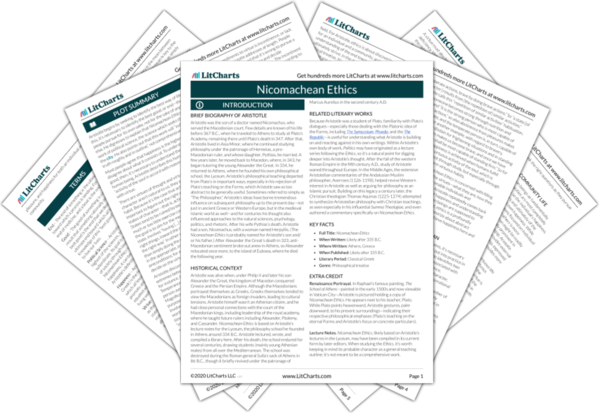Happiness Quotes in Nicomachean Ethics
And so, if the same is true for bravery, the brave person will find death and wounds painful, and suffer them unwillingly, but he will endure them because that is fine or because failure is shameful. Indeed, the truer it is that he has every virtue and the happier he is, the more pain he will feel at the prospect of death. For this sort of person, more than anyone, finds it worthwhile to be alive, and knows he is being deprived of the greatest goods, and this is painful. But he is no less brave for all that; presumably, indeed, he is all the braver, because he chooses what is fine in war at the cost of all these goods. It is not true, then, in the case of every virtue that its active exercise is pleasant; it is pleasant only insofar as we attain the end.

Unlock explanations and citation info for this and every other Nicomachean Ethics quote.
Plus so much more...
Get LitCharts A+









